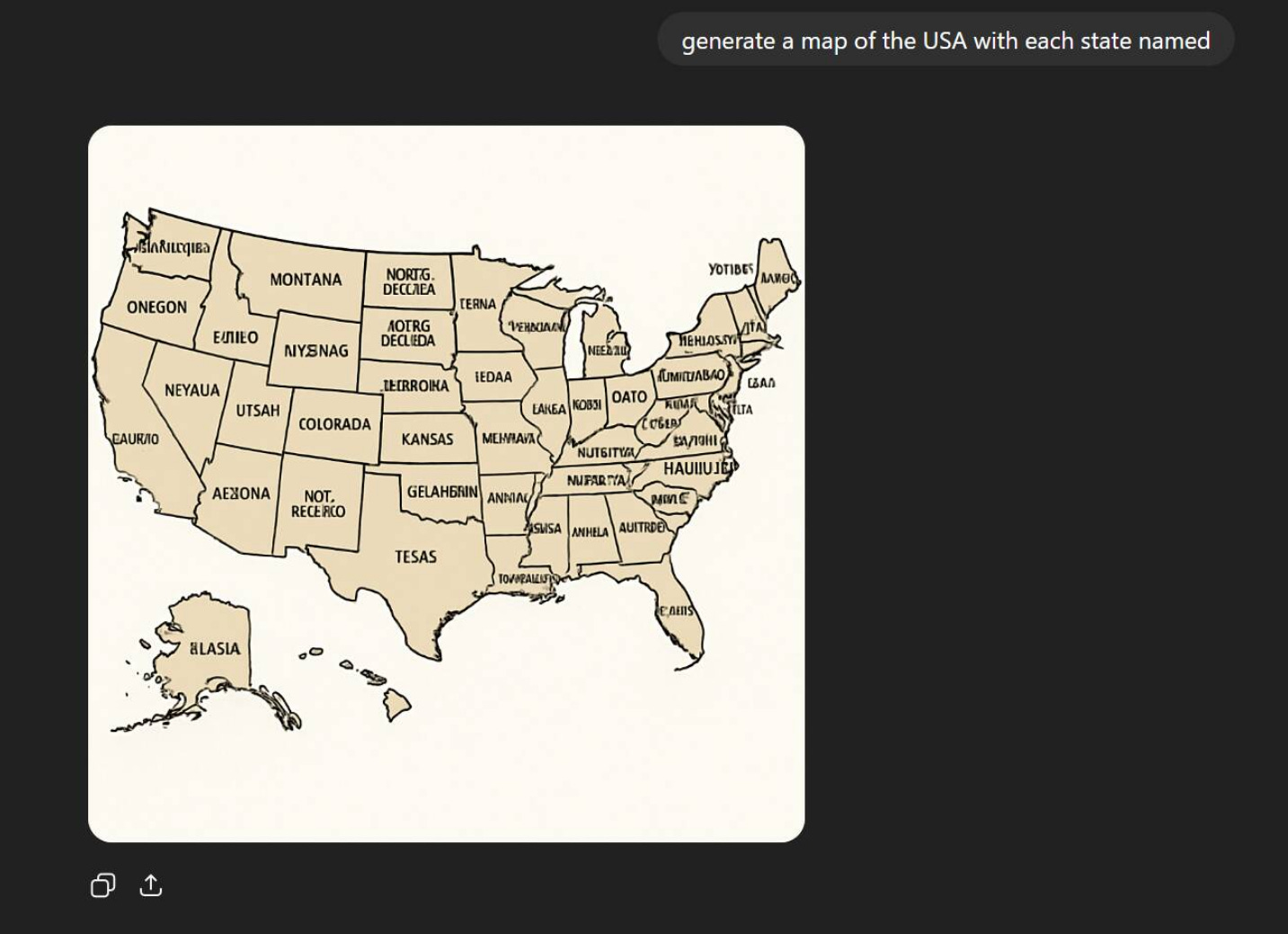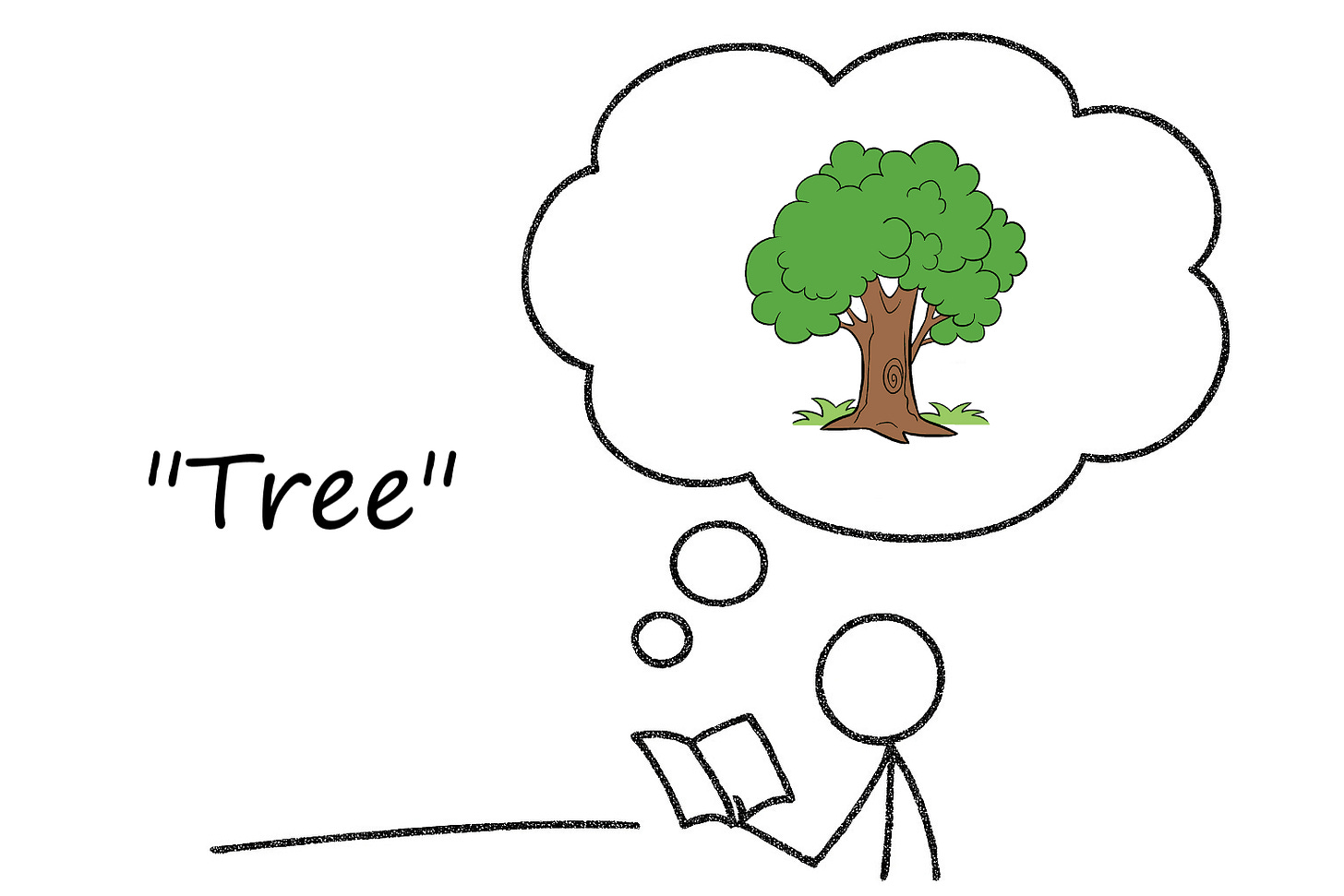Why AI Keeps Falling Short
the imitation game can only take it so far
"GPT-5 is horrible," one of the currently most upvoted posts on the ChatGPT subreddit reads.
And it’s easy to see why people are surprised and disappointed. Expectations were high — after all, large language models (LLMs) often appear intelligent. A few bugs to iron out, and they will become at least reliable, if not super-human. But “appear” is the key word here. See, we don’t train LLMs to understand the world like humans do — we train them to sound like us. We train them to imitate intelligence.
But what’s the difference, you might ask? If it walks like a duck… must be a duck, right? Well, let me show what I think makes humans intelligent — and why AI, in its current incarnation, lacks that capacity.
We humans understand the world by piecing together, in our imagination, its virtual counterpart — a kind of simulation, a virtual reality. None of us is born with it — the only way a person can obtain their copy is by assembling it piece by piece, like a Lego puzzle. This simulation, and what the person sees in it, becomes their knowledge — it becomes their truth.
We even model ourselves as part of it. That capacity — to model ourselves — is what makes us conscious: conscious of ourselves and of our place in the world.
LLMs, on the other hand, know nothing about the world. They read all the texts they can access and learn from it to sound like humans. But they don’t understand the meaning of the words they use. See, we use words to describe our world. To a human, the word “tree” refers to a concept of a tree in their mind. That concept itself is not verbal — it does not consist of other words. You can think of it as visual, like an image of a tree — although it’s much more complex than a simple picture. Either way, it is the association between this non-verbal concept and the word “tree” that gives the word meaning.
ChatGPT, however, cannot do that. It has never seen, touched, or sat under a tree. It has never experienced the world and that’s just one reason why it cannot model it like we do.1 All it knows is how often words occur together, so it could guess what word might come next. And, granted, ChatGPT is remarkably good at this guesswork — so good, it fools many people into thinking that it actually understands what it is saying. But it doesn’t. It relies on statistical inferences to imitate knowledge and understanding, but it doesn’t possess either.2
So where does that leave us? It seems the core idea behind LLMs has reached its limit. To move beyond it, someone will need to figure out how to make AI capable of actual knowledge. As of now, though, I don’t think anyone is even working in that direction — AI researchers remain fixated on language, much like their creations. And that’s not surprising, considering that this failure — to distinguish knowledge from the words that describe it — goes all the way back to Aristotle.
I’m sure we’ll get there eventually. As for when, only time will tell.
The other reason is that it would be really hard for a neural network to develop this capacity on its own. It took the neural networks in our brains five million years of actually living in this world to accomplish that feat. And even though artificial neurons are much faster, it’s far from clear how we could leverage that advantage.
This remains just as true for the so-called reasoning models (RLMs) — they don’t reason, they just sound like they do.




